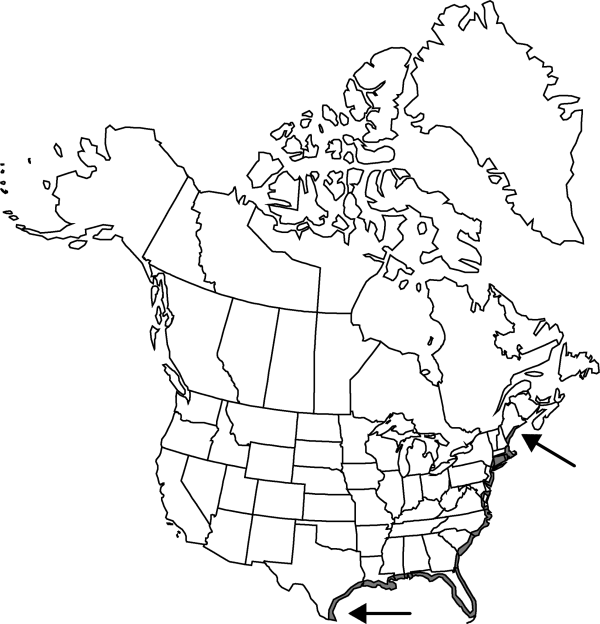Suaeda linearis
Chenop. Monogr. Enum., 130. 1840.
Herbs, perennial, annual in colder regions, erect or ascending, dark green or glaucous, 2–9 dm. Stems erect, green to reddish, often profusely branched from base, slightly woody at base; branches ascending or spreading, not decumbent, slender. Leaves ascending or spreading; blade narrowly linear, planoconvex to semiterete, 7–50 × 0.8–1.8 mm, apex acute. Glomes in usually dense, branched, compound spikes, 1–3-flowered; spike ascending, 1–12 cm, slender; bracts shorter than leaves, 2–7 (–12) × 2–4 mm. Flowers bisexual; perianth ± irregular or zygomorphic (segments slightly to strongly unequal), 1.2–2.5 mm diam.; perianth segments thin, at least one segment abaxially rounded and keeled and/or distally hooded, apex acute; stigmas 2 (–5). Seeds dimorphic; lenticular, 1–1.8 mm diam., with seed-coat black, finely reticulate, shiny; or flat, 1.5–2.6 mm, with seed-coat brown, dull. 2n = 54.
Phenology: Flowering late summer–fall.
Habitat: Salt marshes, sandy beaches, other coastal wetlands
Elevation: 1-10 m
Distribution

Ala., Conn., Del., Fla., Ga., La., Maine, Md., Mass., Miss., N.H., N.J., N.Y., N.C., Pa., R.I., S.C., Tex., Va., Mexico, West Indies (Bahamas)
Discussion
Suaeda linearis is strictly annual (probably related to freezing conditions of winter) and usually green in the northern part of its range; it is usually perennial and glaucous in the southern part.
Selected References
None.
Lower Taxa
"wider than long" is not a number.